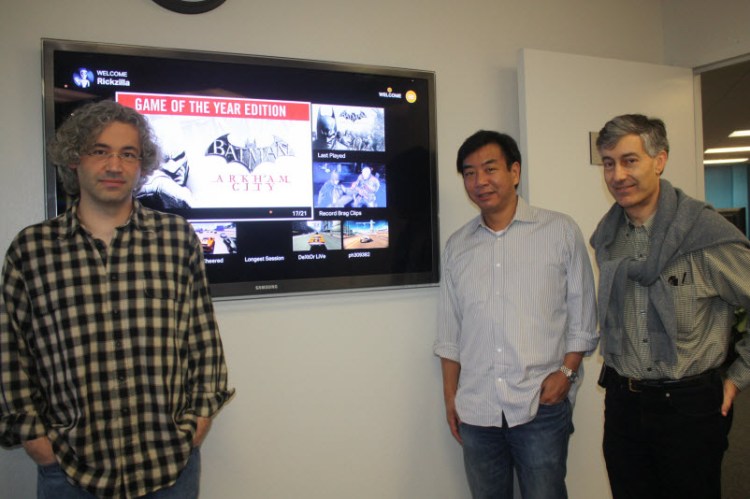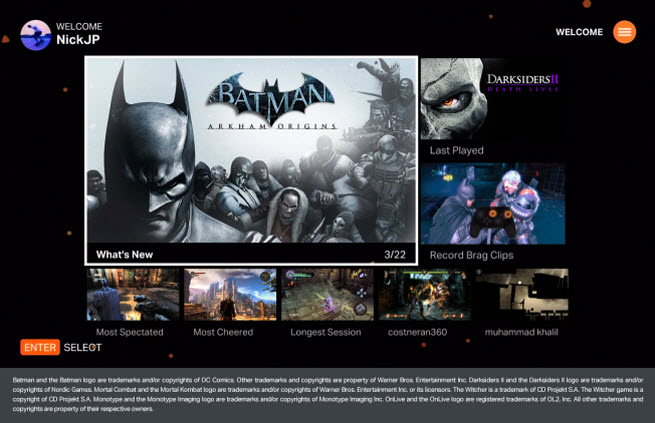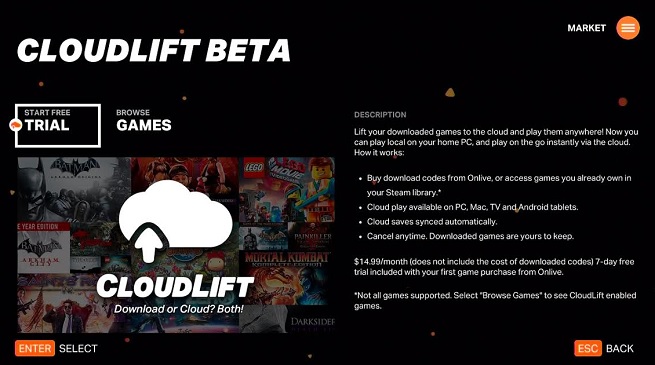OnLive Go
With OnLive Go, the company is setting up deals with specific publishers, like Linden Lab, creator of Second Life virtual world, and Gaijin Entertainment, publisher of the War Thunder military simulation MMO. When you go to register for those games, you can opt to play instantly. Players can sometimes do this using features known as progressive downloads, which send a bit of the game to your computer so you can start it as the rest downloads in the background.
But with MMOs, it’s very difficult to do progressive downloads because you can start in any part of the world. The publisher doesn’t know which part of the game to send to you so you can start it instantly. With OnLive Go, that problem goes away and you can log in much faster. That should lead to improved conversion, or better likelihood that someone with stick with a game they’re trying out. War Thunder is normally a 6 gigabyte download. A lot of people won’t put up with that kind of download just to try a new game.
Linden Lab has also been trying to take Second Life to mobile devices. It can now do so with SL Go, a mobile viewer for Second Life. It extends Second Life to players with Android touchscreen tablets, older laptops, or OnLive’s TV platforms. OnLive will charge by the hour for people using SL Go. The price will be $3 per hour, and people can turn off the paid service as they wish. The more hours someone buys, the lower the cost. The service allows people to teleport quickly and see their creations in Second Life at very high speeds. Normally, Second Life won’t run at all on mobile connections, and that’s a problem as users migrate to mobile devices.
The services are available today, and more OnLive Go partners will materialize over time. A beta test has been running for a couple of months for both CloudLift and OnLive Go.
“OnLive is offering gamers something no other company has: the ability to access complex games instantly across multiple platforms. We’re excited to use OnLive’s service to help bring potential War Thunder customers into the game more quickly and to provide greater access to our current customers,” said Anton Yudintsev, CEO of Gaijin Entertainment, in a statement.
New approach to business
The pricing may seem high, but OnLive is now built to be a sound business, Jung said. And some costs have dropped. OnLive used to have 20 employees that had to help convert games so they could run on the OnLive service. That is now longer necessary, as OnLive works without the need to modify games. Lauder said that will allow the company to get games much closer to the time when they are released on other platforms.
Lauder also said, “We have taken an order of magnitude out of the costs. Early on, when the change in ownership happened, a lot of stories said that OnLive was crushed by its data center costs. That was inaccurate. The largest expense was for employees.”
OnLive now has a smaller payroll at 110 employees, well below its peak above 200. On top of that, the service that OnLive offers are now separated from the underlying architecture, Jung said. OnLive can improve its infrastructure and users will never even notice. OnLive is also hard at work on making its technology work on the infrastructure that other companies operate.
“We can make constant dynamic changes in the architecture unbeknownst to our users,” Jung said. “We can also host our service in someone else’s architecture. We have a whole R&D team working on next-generation support so we can move to other hosts.”
And that strategy also sits well with publishers, who often have their own infrastructure for online games. OnLive’s approach is thus more palatable because it is not as closed as it used to be.
“That is one thing that is different since I came on,” Jung said. “We need an architecture that is evolving and improving. The closer we get to a partner, the more flexibility we need on who operates the service and where it will be hosted. In the past, OnLive had a closed, proprietary approach. Our team is more open and adaptive and dynamic.”
Jung, who was co-founder and CEO of IGN and CEO of the video streaming service Vudu, has been on board in a quiet way since May 2013. But OnLive is announcing today that he is executive chairman and is basically running the company. Charlie Jablonski, who took over as CEO after Perlman left, has also left the company. Lauder is giving up his title of chairman and will remain lead investor of OnLive. Sanchez, former vice president of Playdom at Disney Interactive, joined about half a year ago.
Other new hires include Carrie Holder, vice president of business development and former director of partner management at Electronic Arts. Don Gordon became OnLive’s senior vice president of engineering about a year ago.
OnLive will face a lot of competition from the likes of G-Cluster, Playcast, and Sony’s PlayStation Now service, which will come via its Gaikai acquisition. OnLive said it will have a rolling release of more titles as it gets more deals with publishers done.
In summary, Sanchez said, “We are still the only company offering AAA content that you can stream over the Internet.”
VentureBeat's mission is to be a digital town square for technical decision-makers to gain knowledge about transformative enterprise technology and transact. Learn More



